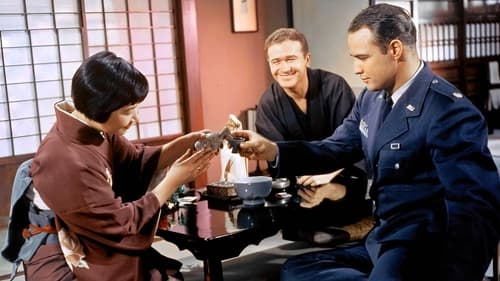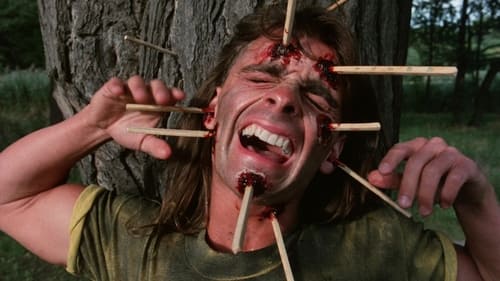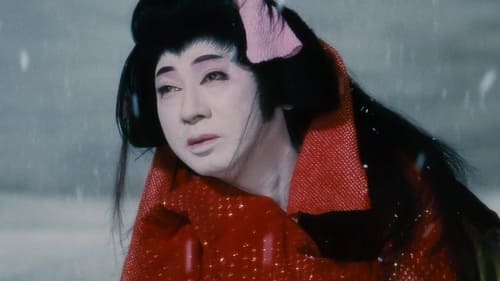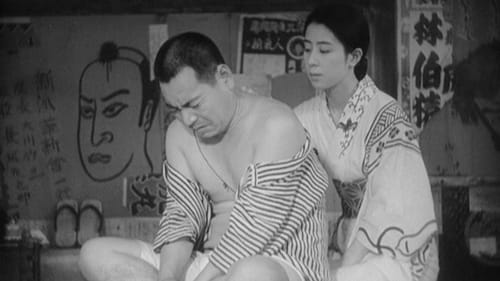Oiwa Nagaya (1931)
Genre : Drama, Horror
Runtime : 0M
Director : Kyōtarō Namiki
Synopsis

Air Force Major Lloyd Gruver (Marlon Brando) is reassigned to a Japanese air base, and is confronted with US racial prejudice against the Japanese people. The issue is compounded because a number of the soldiers become romantically involved with Japanese women, in defiance of US military policy. Ordinarily an officer who is by-the-book, Gruver must take a position when a buddy of his, an enlisted man Joe Kelly (Red Buttons) falls in love with a Japanese woman Katsumi (Miyoshi Umeki) and marries her. Gruver risks his position by serving as best man at the wedding ceremony.

Harry Griswald is a NYPD cop who is possessed with the spirit of a great Kabuki master. This has made him 'the chosen one' to do battle with 'the evil one'. He is also out to do good deeds and fight crime in the name of the law. The only problem is that a number of corrupt people in the community and their henchmen want him dead so that they can gain power when 'the evil one' come to take over the world. Sgt. Kabukiman must use his special superpowers to outsmart and out-fight the bad guys.

While performing in a touring kabuki troupe, leading female impersonator Yukinojo comes across the three men who drove his parents to suicide twenty years earlier, and plans his revenge, firstly by seducing the daughter of one of them, secondly by ruining them...

In late 19th century Tokyo, Kikunosuke Onoue, the adopted son of a legendary actor, himself an actor specializing in female roles, discovers that he is only praised for his acting due to his status as his father's heir. Devastated by this, he turns to Otoku, a servant of his family, for comfort, and they fall in love. Kikunosuke becomes determined to leave home and develop as an actor on his own merits, and Otoku faithfully follows him.

An aging actor returns to a small town with his troupe and reunites with his former lover and illegitimate son, a scenario that enrages his current mistress and results in heartbreak for all.

The lion dance in traditional Japanese theatre.

An onnagata (female impersonator) of a Kabuki troupe avenges his parents' deaths. Remade in 1963 as Yukinojô Henge.

In Edo-era Japan, a ukiyo-e artist languishes in his master’s shadow. Creatively stifled, he finds consolation in the company of a prostitute, and becomes entangled in a love triangle. A mystery emerges involving two portraits and the sudden disappearance of the artist Sharaku. Helmed by Cannes-selected director Tatsuji Yamazaki, the film employs kabuki-inspired sequences and stylised sets.

This film depicts a troupe of wandering kabuki players traveling through rural Japan.

[…] A reel was shot of the Noh drama Momiji-gari (Maple Leaf Hunters, or Viewing Scarlet Maple Leaves), in which Danjuro played opposite Onoe Kikugoro V (1844-1903) as an ogress who has disguised herself as the Princess Sarashina. Filmed by Shibata Tsunekichi in the open air on a windy day in November 1899, Danjuro would allow only the one take, so that when his fan blew away in mid-performance the scene had to stay. The film re-emerged at the Kikikan theatre in 1907 where it was a great success and inspired a wave of fiction filmmaking based on traditional Japanese narratives. (cont. http://victorian-cinema.net/danjuro)

During an interview, Tadashi, a young Japanese actor who plays female characters in a theatrical practice similar to kabuki, will return to the past to relive his most intimate memories.







